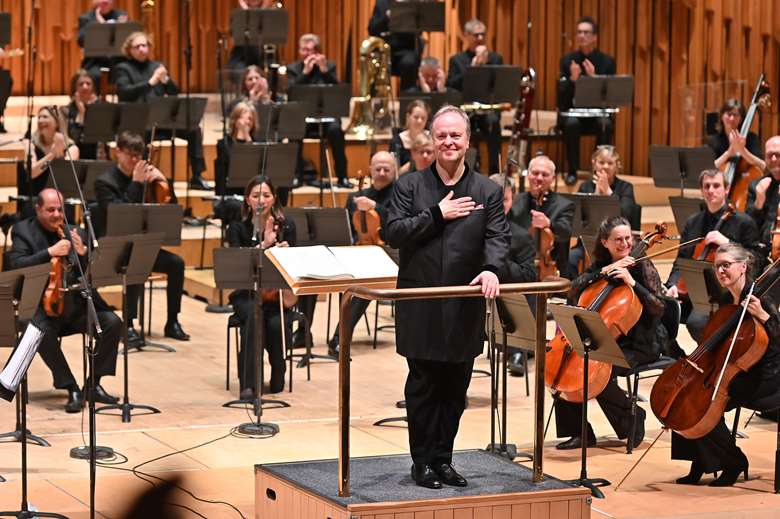BBC to ‘explore alternatives’ to proposed redundancies in broadcaster’s English orchestras
Florence Lockheart
Thursday, April 13, 2023
In a statement released today the broadcaster has confirmed it is looking at alternatives to the proposal which will ‘create sustainability’ in its performing groups

The BBC has today released a statement confirming its commitment to exploring alternatives to the proposed redundancy of 20% of the players in its English orchestras. The broadcaster also invites ‘independent experts’ to collaborate alongside the Musicians’ Union (MU) on alternative solutions.
The BBC’s announcement of its new future strategy last month sparked social media uproar among members of the classical music sector and beyond. As part of the strategy, the BBC’s head of orchestras and choirs, Simon Webb confirmed plans for the voluntary redundancy of 20% of salaried players across the BBC Concert Orchestra, BBC Philharmonic and the BBC Symphony Orchestra with the aim of reducing the orchestras’ salary base, ‘investing in our freelance colleagues’ and ‘resetting the model’ within the orchestras.
The broadcaster’s statement, released this morning, said: ‘These alternatives will look to create sustainability for our Performing Groups and to deliver the recommendations of the 2022 Classical Review – which are outlined below:
-
- We will collaborate more with partners across the UK
- We will invest more in education
- We will do more to open up the classical sector as a place to work
- We will innovate to bring classical music to new audiences’
The BBC added: ‘In exploring alternative proposals, we will also invite independent experts from across the sector to work with us and the Musicians’ Union.’
MU general secretary Naomi Pohl welcomed the news. She said: 'Over the past two weeks, we have had more positive discussions with the BBC and we believe they have listened to the concerns of the Union, our members and the wider industry. While we appreciate the financial challenges faced by the broadcaster in the current climate, we have always been fierce advocates for their unique role in the sector and we will approach this consultation with a focus on building on what they do rather than paring it down. There are many issues to discuss but our objective will be to protect jobs and look initially at income generation and greater use of the Performing Groups within the BBC itself. We will consult and involve our members throughout the process.'
The planned voluntary redundancies were accompanied by news of the shutting down of the broadcasters’ long-running choral ensemble BBC Singers. Plans to close the choir have now been suspended following a campaign which included a petition which garnered more than 150,000 signatures and an open letter signed by over 700 composers. In today’s statement the BBC confirmed that: ‘In parallel, we remain committed to consulting the Musicians’ Union and other BBC unions on progress regarding the alternative models being proposed for the BBC Singers.’
Independent Society of Musicians (ISM) chief executive Deborah Annetts said: ‘On the face of it, this announcement looks like a positive move from the BBC, but we will need to see the detail to understand fully how this will impact on the long-term future of the BBC Performing Groups. There has been an incredible international public outcry about the BBC’s plans to axe the BBC Singer and orchestral jobs which has undoubtedly played a large part in today’s announcement. We remain concerned about the future of the BBC Singers. It is our view that the BBC should take the step of guaranteeing their future within the auspices of the BBC, funded publicly by the BBC.’





